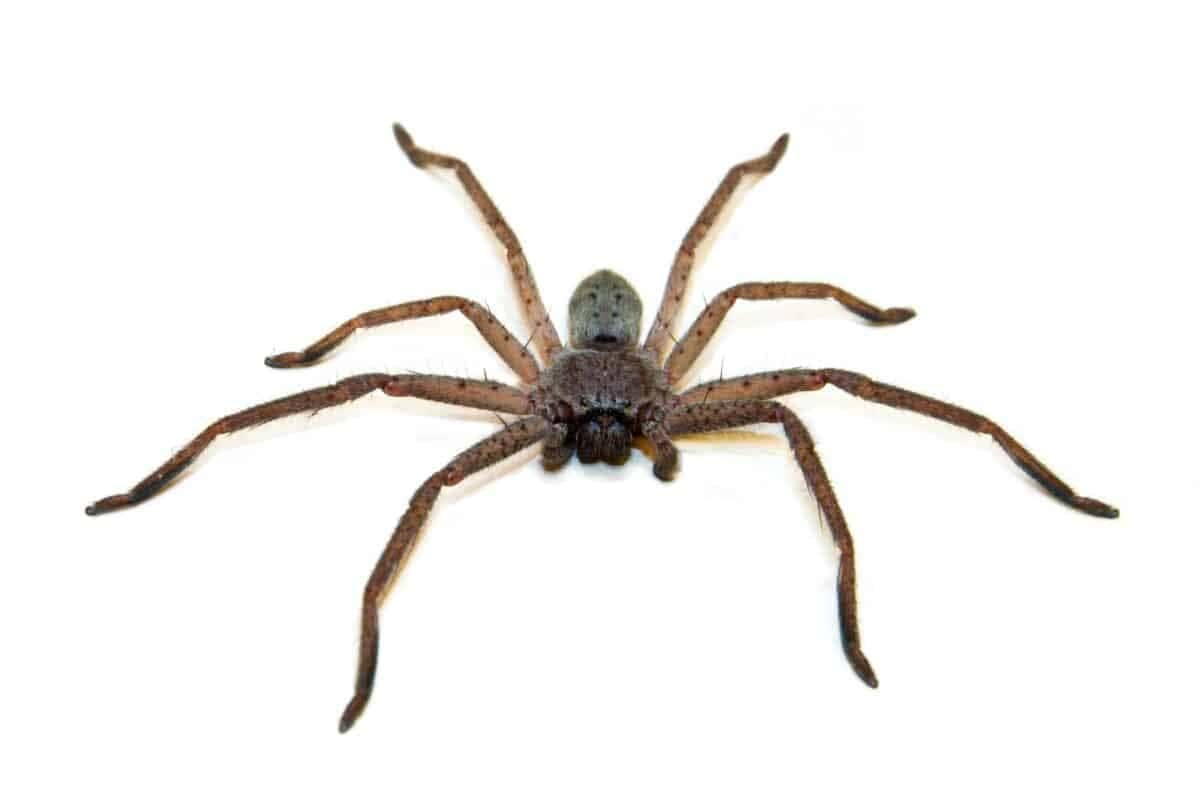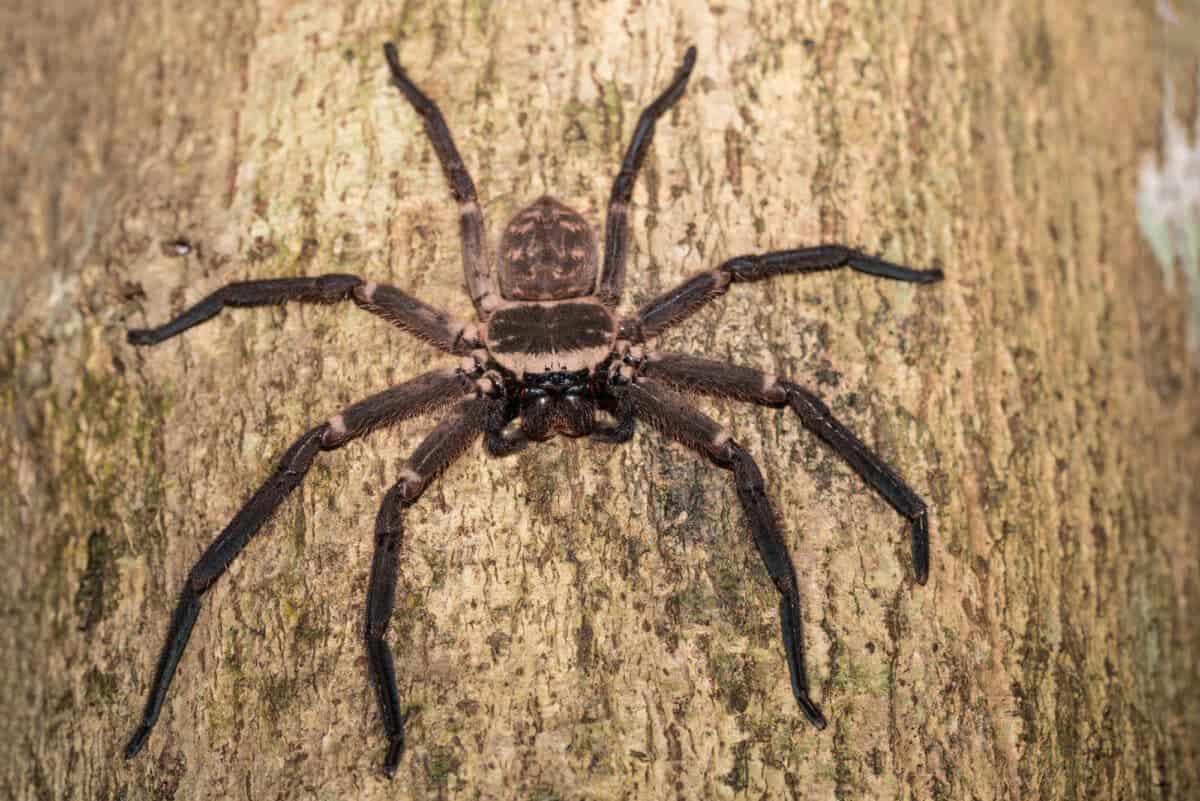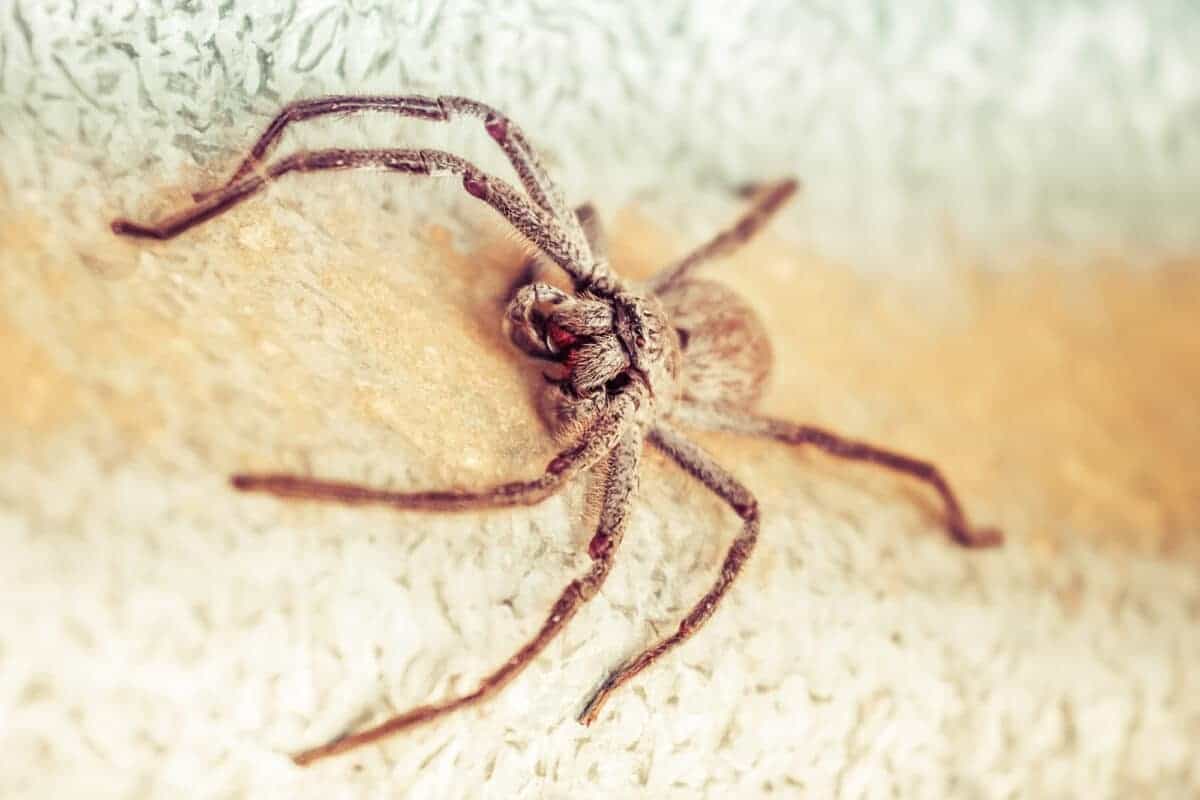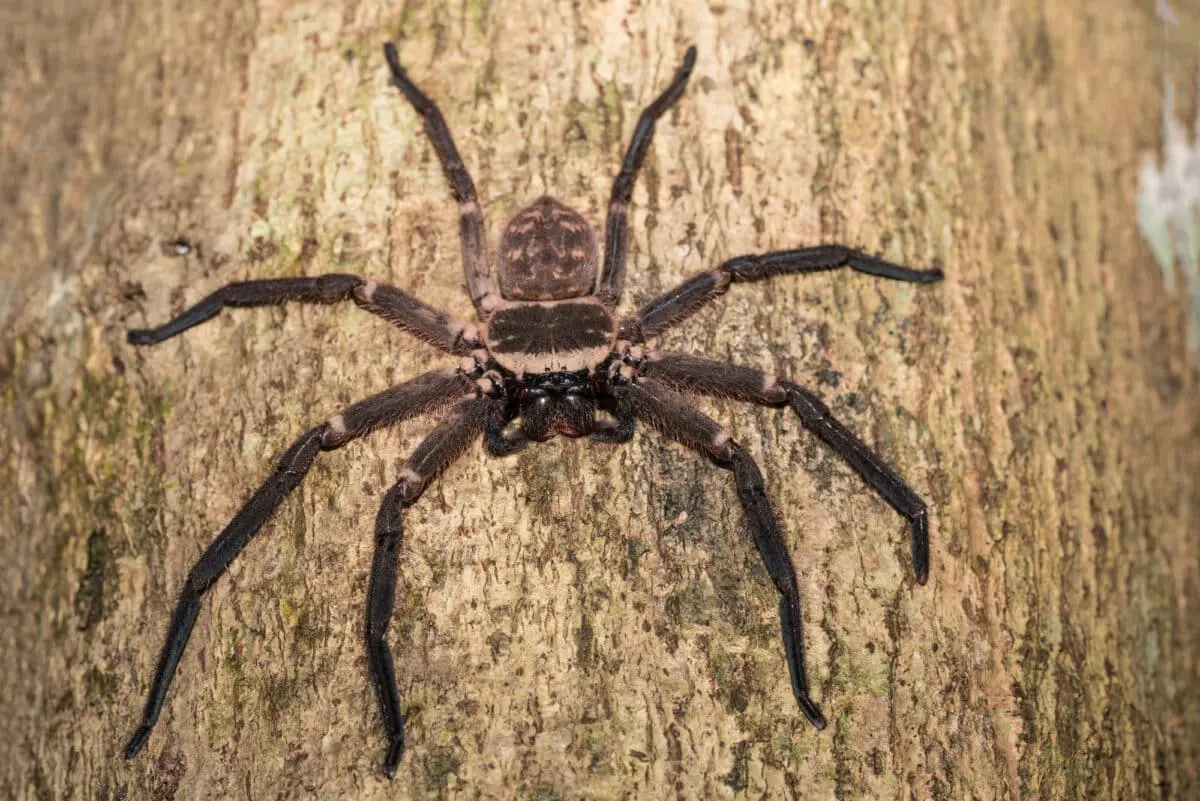Are you afraid of spiders? If so, the thought of being bitten by one can likely send shivers down your spine. Fortunately for those with arachnophobia, spider bites are rare, and most species pose no threat to humans. However, knowing what types of spiders are more dangerous is essential to avoid potential harm.
Skip ahead to any section below!
What is the Huntsman Spider, And Why Should You Be Aware Of Them In Your Home

The Huntsman spider is a large, fast-moving spider species found in homes throughout Australia and other parts of the world. They are commonly found in the corners of homes, and they can grow up to 30 centimeters in size from leg to leg. However, large and formidable-looking
Huntsman spiders are relatively harmless to humans and not venomous. However, they can be quite startling, and their presence in your home should not be ignored. While they may not threaten your health, they can certainly surprise and frighten you, especially if you encounter them unexpectedly.
If you live in an area where Huntsman spiders are common, it’s a good idea to be aware of their presence and to take steps to prevent them from entering your home.
Symptoms Of A Huntsman Spider Bite

If you ever find yourself in an area where Huntsman spiders are prevalent, it’s important to know the symptoms of a bite. While these spiders are generally not aggressive towards humans, they may bite if threatened. Symptoms of a Huntsman spider bite include pain, swelling, redness, and itching around the bite site. Sometimes, people may also experience nausea, headaches, or muscle pain.
While these symptoms are usually not severe, seeking medical attention is still important if you think you’ve been bitten. A doctor can evaluate your symptoms and provide necessary treatment to prevent further complications.
How To Treat A Huntsman Spider Bite
Huntsman spiders are common in Australia and some parts of Asia. Their bite can be painful and cause some discomfort. To treat a Huntsman spider bite, cleaning the affected area with soap and water is essential.
Applying a cold compress can help to reduce swelling, redness, and pain. Keeping the affected area elevated is also important to promote blood circulation and reduce inflammation. If the pain persists or symptoms worsen, seeking medical attention is recommended.
Antihistamines and pain relievers may be prescribed to alleviate symptoms. It is also important to remember that prevention is key.
Avoiding contact with Huntsman spiders and their habitats, wearing protective clothing, and keeping your home and surroundings clean can go a long way in preventing spider bites.
Tips For Avoiding Huntsman Spiders In Your House

For those who fear spiders, the last thing they want is to have a Huntsman spider lurking around their house. One of the best ways to avoid these eight-legged creatures is by reducing clutter around your home. Huntsman spiders hide in dark and cluttered places, making it easier to spot them if your house is organized and clutter-free.
Additionally, it is important to seal any cracks and crevices where these spiders can enter. Check window sills, door frames, and other areas where they can easily enter.
Regularly cleaning your house, especially in hard-to-reach corners, could also go a long way in keeping these spiders out of your home. Following these tips can ensure peace of mind and avoid unwanted encounters with Huntsman spiders.
Check out: King Snake vs. Death Adder.
What To Do If You Find A Huntsman Spider In Your Home
If you find a Huntsman Spider, it’s important to remain calm and handle the situation carefully.
First and foremost, avoid trying to touch the spider or move it with your bare hands, as this can agitate it and cause it to feel threatened.
Instead, use a cup or jar to cover the spider and scoot a piece of paper or cardboard underneath, trapping it inside. You can then release the spider outside safely from your home.
It’s important to note that while Huntsman spiders may look intimidating, they are not venomous to humans and are beneficial in controlling insect populations. However, if you feel uncomfortable or unsure about capturing the spider, it’s always best to contact a pest control professional for assistance.
When To Seek Medical Attention For A Suspected Huntsman Spider Bite

Image: Pexels.
Huntsman spiders are a common sight in many homes and gardens. Still, their bites can elicit a range of responses from mild irritation to severe pain and discomfort. If you suspect that a Huntsman spider has bitten you, it is essential to monitor the symptoms closely.
Sometimes, people may experience a severe allergic reaction to spider venom, which can cause difficulty breathing, chest pain, dizziness, or fainting. If you experience any of these symptoms, seek immediate medical attention.
Other indications of seeing a doctor include intense pain or swelling at the bite site, feeling unwell or feverish, or if the bite is not healing and appears to grow. It’s always better to be safe than sorry about any kind of spider bite, so don’t hesitate to contact a medical professional if you have any concerns.
Frequently Asked Questions
Generally, Huntsman spider bites are not dangerous to humans, and their venom is considered mild, causing minor irritation and discomfort in most cases.
Identifying a Huntsman spider bite can be difficult as it may resemble other insect bites, appearing as a red, swollen area. If unsure, monitor the bite and consult a healthcare professional if symptoms worsen.
If bitten, clean the area with soap and water, apply a cold compress for pain relief, and monitor the bite for any unusual reactions. Seek medical attention if severe symptoms or an allergic reaction occurs.
Wrapping Up
YouTube
The Huntsman Spider is a misunderstood creature, and while it can be alarming to find one in your house, it’s important to remember that most of their bites are harmless. While some people may experience an allergic reaction to an edge, most Huntsman Spider bites only cause minor irritation.
Thanks for reading along, see below for related article links!
Next up:
- Redback Spider Bites & How to Treat Them
- Sharp-Nosed Pit Viper
- Amur Leopard: World’s Most Endangered Big Cat
- Anaconda vs. Asian vine snake
- Alaskan Malamute Vs. Bearded Collie
- Bengal Tiger Vs. Western Diamondback Rattlesnake
- Bernese Mountain Dog
- The Greenland Shark
- The Largest School of Spinner Dolphins
- Whale Sharks
- Watch Starfish Walking on the Beach - April 24, 2024
- Watch Bison Stampede Around Bus in Yellowstone - April 24, 2024
- How to Survive a Tiger Attack - April 23, 2024



Saturday 26th of August 2023
People who think spiders are docile are nuts they don't like to be touched and they can kill u everybody can't withstand a shock if the venom goes to your heart u won't know what hit u no warning spiders are wild and creeping for a reason run if u see Wolfe spiders don't let spiders crawl on u u.